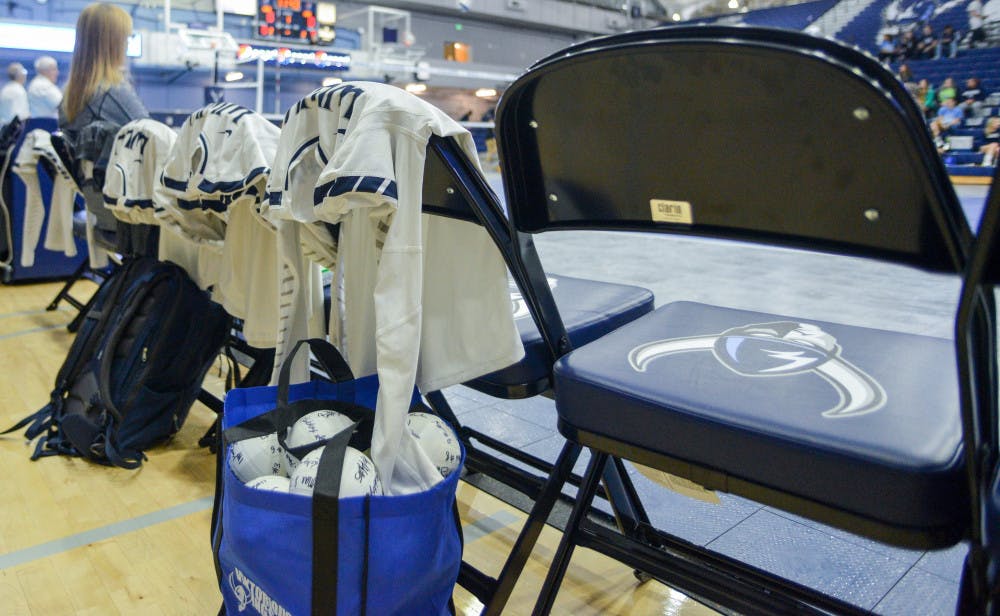
The Great Northwest Athletic Conference CEO Board has delayed winter sports competition until at least Jan. 7, 2021.
Among the sports delayed are men and women’s basketball along with indoor track. The CEO Board also approved plans for fall sports to be held in the spring, and the board will continue reviewing this timeline over the coming months, according to the GNAC website.
Student-athletes will now go a minimum of two more months without organized competition against other GNAC opponents on top of the seven months student-athletes have already endured.
“We got word just a few weeks ago that basically we were going to be able to have at least practices as a team,” said Tony Bennett, head coach of Western’s men and women’s golf teams. “Which has been nice because up to this point, it's been no contact really at all.”
Up until that recent announcement, all coaches could do was check in on athletes, Bennett said. Both of his teams will resume organized team activities next week, and the golf teams will practice like they would for a normal fall season, Bennett said.
Once fall season starts, teams are allotted 45 days of structured practice with a maximum of 20 hours of practice a week, said Bennett. He added that his teams rarely practice the full amount they’re allotted, saying 20 hours of practice a week is a lot for players to balance with school.
“Once that 45 days is up, it’s really reduced to if they want to practice, they can,” Bennett said. “It's all on their own, and we focus more on just kind of physical fitness to get them ready for the spring season.”
As of Monday, Oct. 12, no cancellations or postponements have been announced for the 2021 spring season. Bennett said he has high expectations for the upcoming season but he’s most excited about getting back to practicing with his teams.
While Bennett and most of his golf team are looking forward to reuniting in-person on the golf course, some Western student-athletes remain at home, studying and training remotely.
Hannah Dodson, a senior pole vaulter for Western track and field, is one of those student-athletes studying and training from home this quarter.
”I'm actually practicing remotely this quarter, so I'm going to a pole vaulting gym that's in Oregon City and then keeping on top of all of my other training, just on my own, which is kind of weird to not be practicing with the team,” Dodson said. “I kind of feel a little bit excited about it cause I think it could be really cool, but I also miss all of my teammates.”
As for what the track and field team is currently doing to get ready for the season, Dodson said there are some students practicing on campus. Team meetings are held on Zoom now, so students studying remotely can participate, Dodson said.
Dodson said virtual coaching is available for athletes, but since the season started on Oct. 4, she hadn’t taken advantage of it yet.
If there was no pole vaulting gym near her, Dodson said she probably wouldn’t be able to practice and her performance would definitely suffer.
Neither Dodson nor the track coaches know for sure when the season is going to resume, but their mentality is to prepare as though the season is going to happen, Dodson said.
Brendan Fann, a physical therapist at Providence Hospital, says that multiple monthlong absences from a competitive sport can have major effects on an athlete’s performance and health.
“There's a lot of different variables that come with de-training,” Fann said. “De-training is kind of like the terminology that we use, that if you don't have a certain stimulus over time for a specific sport, that things start to go downhill,”
Fann added that varsity sports like those at Western usually have offseason workout programs in place to avoid these long periods of de-training. These offseason programs serve not only to increase the athlete’s strength, but also to reduce their injury risk.
Dodson said she got offseason workout plans from her coaches on the track team. However, as Bennett said, all coaches could do this offseason was stay in communication with their players, so it was on the athletes to stay in shape.
“If you're kind of sitting on your butt and all of a sudden you go play a game, just like a full on varsity sport, it's gonna be really tough on the body,” Fann said. “You can be pretty sore afterwards, and your injury risk does increase.”
For athletes who have not been able to train for their sport and are nervous about getting injured upon their return, Fann recommends easing back into workouts and slowly ramping up intensity as time goes on.
Teams are required to follow the NCAA’s Core Principles of Resocialization of College Sport when they resume organized activities. The Core Principles are intended to provide teams a guideline for reintegrating sports that is consistent with federal guidelines.





